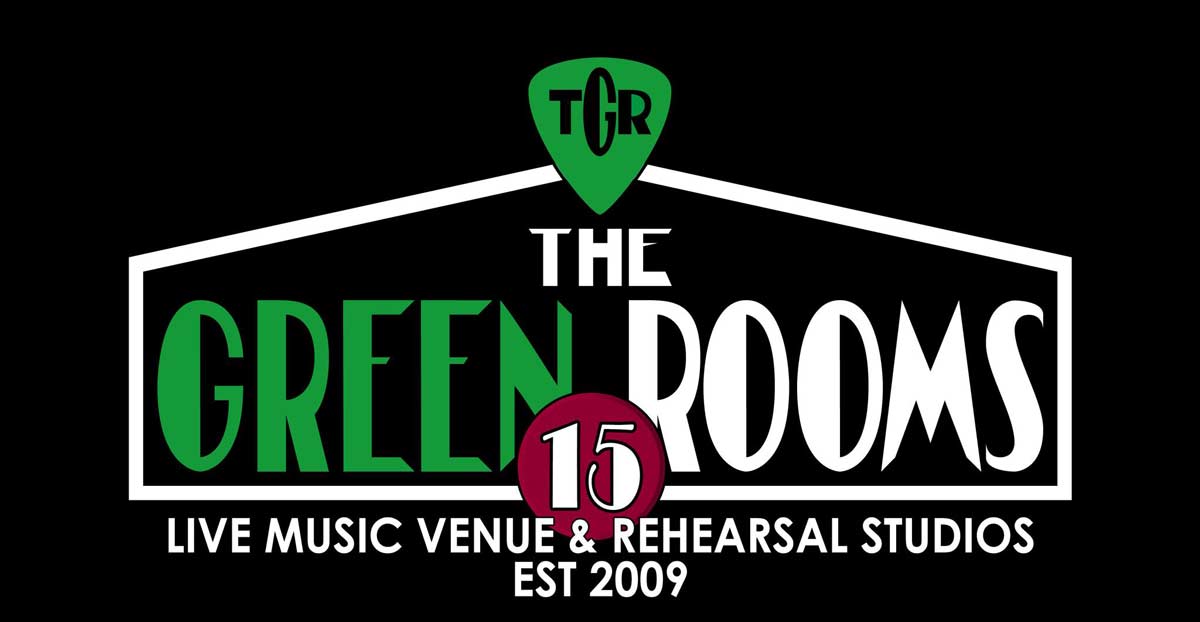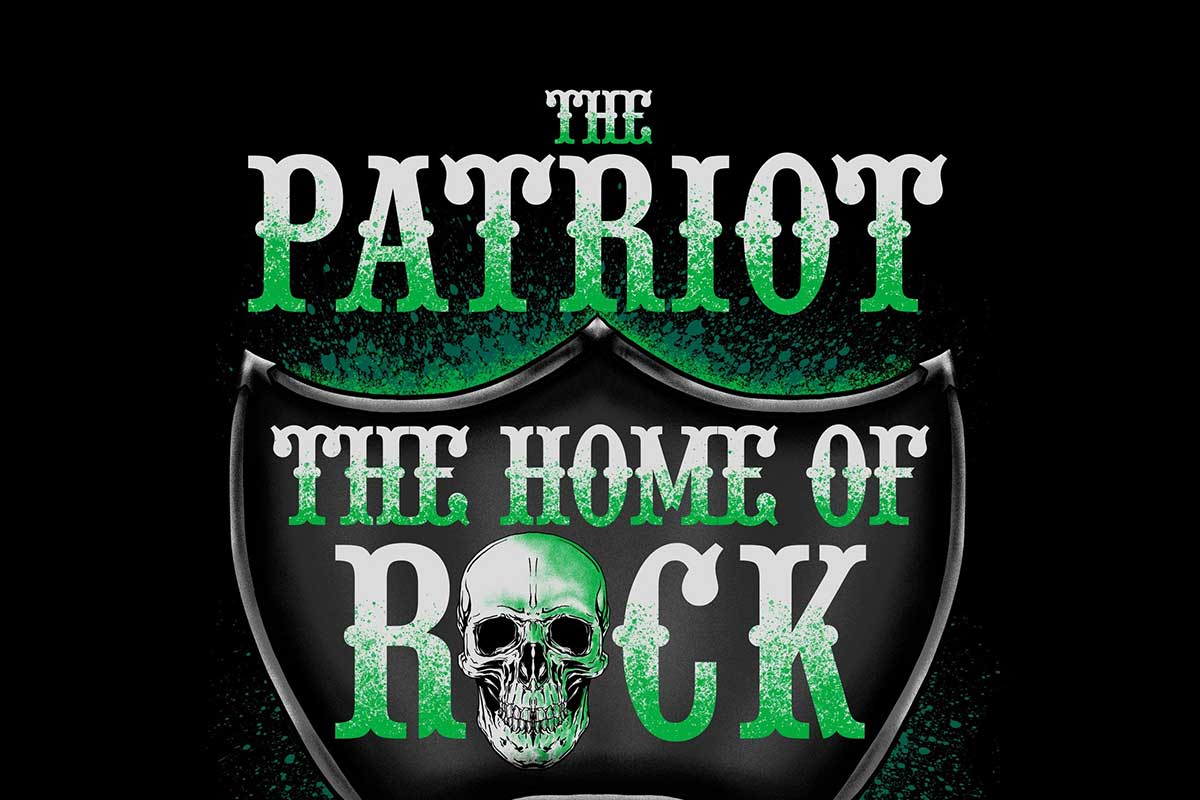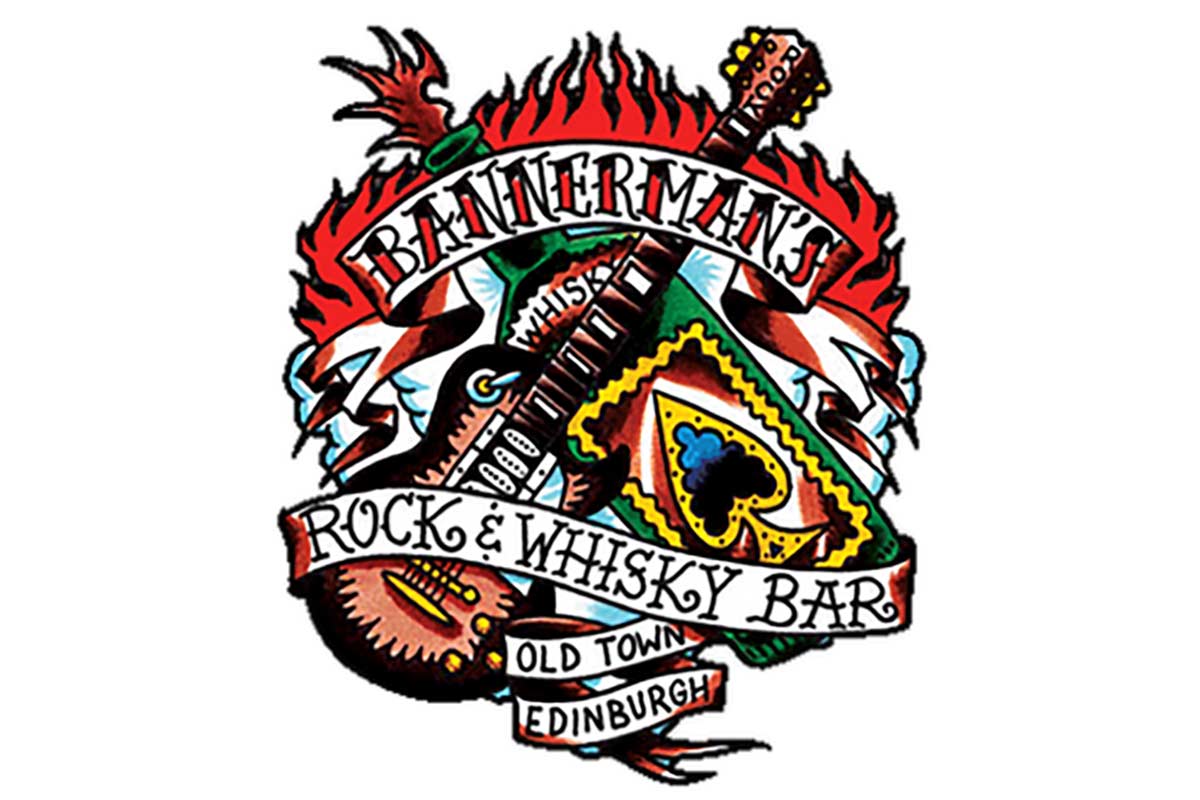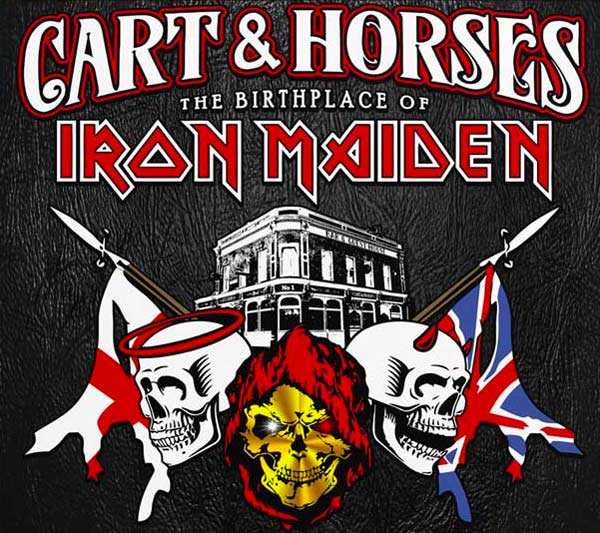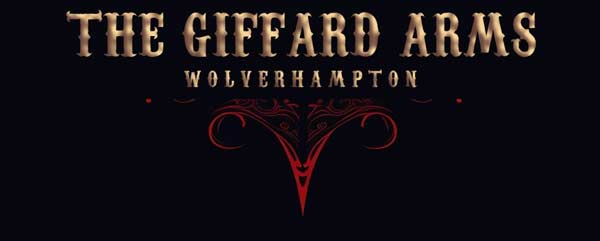James Kennedy is back wielding his pen with his second book, Loud Medicine, out today. If Noise Damage was James’s story so far, then Loud Medicine is his powerful manifesto, smashing rock ‘n’ roll fantasies and capturing the struggle and dream of music’s underdogs in the raw.
In Loud Medicine, James Kennedy takes us all on a tour through the hidden lives of the everyday musician. Often funny, quite scary at times, this is his unveiling and unmasking of the state of the music industry. If you are not in a band and want to know how it all works today, here you will find the truth behind all of James Kennedy’s experiences in this difficult landscape.
“It’s pretty much covering the whole terrain of the music industry in 2025,” James told MetalTalk. “The reality of life as a musician, the 99%, the underdog musician, is the kind that I write about. Some of the challenges that we face, be it technological, AI, streaming, the digitisation of our industry and the way things are going generally.
“Also, things like the venue closures, bricks and mortar problems. Mental health is still a big one in this industry. It hasn’t gotten any better in over 100 years. There’s some scary stuff in there, but it’s a love letter to music as well.
“Despite all of those things, music is still the best medicine we’ve got in the world, and that’s why we keep doing this crazy thing despite the battle scars.”

As a whole, Loud Medicine really hits home if you have been in a band. For me, the thing I like is all the eye-opening that will happen for those who do not play.
“Hopefully,” James smiles. “My first book, Noise Damage, delved quite deeply into that terrain as well. The reality of transit van life and the Evian shower. For those who don’t know what that is, it’s not as glamorous as it sounds. It’s basically showering with warm bottled water in dusty car parks.”
There is a small crossover with Nose Damage, “because that’s my experience of things so far,” James says. “It was a tough act to follow, especially as Noise Damage was so well received. This one, I’m hoping, is more of a, as you said, manifesto. I think it is a great word. It’s a philosophising of such on the state of play for us underdog musicians in the modern age.”
Save Our Venues is a great concept. Is that something that we in the press should be shouting about a lot more? “100%,” James says. “I mean yourselves and obviously NME are quite supportive of the cause as well. I just don’t think enough people know about it in the general public, to be honest.
“That’s why I try to really lay it out in the chapter called Save Our Venues. I play in a band called James Kennedy And The Underdogs. We gig around the place and it’s such an amazing community of people that really do support live music, grassroots venues and emerging artists. They really do get it. They buy the merch even if they bought it at the last gig because they know that it all goes in the petrol fund and that’s wonderful.
“But I do think that the true dark reality of the venue situation and the mental health situation is still largely kind of unknown by too many people. Even those who, like I say, are on the right side of this.”
The Loud Medicine chapter Kill Machines talks of the importance of music and art. Art is our species’ proudest moment, is a standout point. If you look at the way business is, with things like AI, I suggest it seems like they’re trying to make everything like a microwave meal.
“Definitely,” James says. “We’re all unpaid labourers now for big tech. All of us put content on, whether you’re an artist or you put pictures of your breakfast or your dog. These platforms like Spotify, Meta, YouTube. All of them don’t actually create any content of their own.
“They’re the biggest content providers in the history of the world, and they don’t actually create anything. All of us do that and hardly anybody gets paid for the hours of time they put into creating content for these things.
“We’re all unpaid labourers now for big tech corporations, and that’s a mental place to be. It has a really detrimental effect on everybody’s mental health, I think. The validation by likes and comments and engagements and the need to degrade yourself to the lowest common denominator to try and get engagement.
“Someone like me who’s very politically outspoken, I’ve got to bear that in mind now before I post. Is this just gonna get me shadow-banned again? Is this gonna make my page invisible when I’ve got a book to promote? So maybe I won’t mention this issue around this time.
“You start self-censoring yourself, and it’s kind of like censorship by algorithm. I think everybody’s feeling it. I think social media had its day in the sun when it was fun and it was useful and it was powerful. And now, like every good idea, it’s being kind of co-opted by the powers that be.
“I’ve very radically changed my position on it over the past few years since Noise Damage came out. I’ve now done a kind of a 180 on it where I see how destructive it’s now become.
“In that chapter Kill The Machines, I very much espouse the idea of just fucking unplugging. Put a physical record on. Put the phone in the drawer. Turn it off and pretend it’s 1995 again before everything got complicated. Sit back with friends, listen to music through actual speakers, let the air move around you and remember what it’s like to sit around the campfire being a human being again. Fucking billionaires.”
When you think of the algorithm, you can read stories online of social media moderators in some of the poorest parts of the world being suicidal because of the working conditions and the extreme videos that they have to watch. The other side is the number of false Facebook Accept Netflix documentary posts that are appearing.

I tell James Kennedy that I have an issue with PRS, but even more so with the album chart. If you look at the Top 100 albums, there are a large number of compilation albums there. If I play Go Your Own Way, does it go against the Rumours album or the Don’t Stop compilation? Are Fleetwood Mac songs double-counted? I say I want to see the computer code behind this.
“It’s such a mess, to be honest,” James agrees. “I still own a music publishing company, so I get massive scrolls of statements with loads of data that I can’t make any head or tail of. I’m working with one of the biggest independent music publishers in the game, and if we can’t make any damn sense of it, then God knows how an independent artist is going to. It’s just a mess.
“They are making tons and tons and tons of money, by which I mean the tech companies and the major labels who are basically in bed with them. They’re making all the money. The rest of us haven’t got a clue whether we’re making money. Where that money’s going? Is that our song, or is that somebody else’s song?
“I’ve got an issue that I share the same name as quite an infamous DJ in America. If you share my music on Instagram or Facebook and then click on the artist page, it goes to him. So, is he getting my royalties? There’s no way to appeal that. You can’t message support at facebook.com saying, ‘Excuse me, there’s an error.’ There’s no one to contact. So it’s just this landfill of data. It’s just a mess, and all of us are trying to make some sense of it. It’s crazy.”
There is no validation, no verification, I say. There is no way to find out the details. This and all of James’ experience with tech is covered wonderfully in Loud Medicine. It is an eye-opener.
I love the Week In The Life chapter, which details the hours spent in just one week working in the music industry. It hits home from a MetalTalk editorial standpoint how you have to be focus-driven and, basically, maybe a bit mental.
“Alcohol helps,” and James Kennedy and I laugh. “That feeds into the other chapter to do with mental health. I want to speak to my community and my fellow musicians, but I also wanna kind of speak to the broader music-loving public as well, who want the best for their favourite artists. They want to know how best to support them and do their bit.
“I know that everybody does because I meet them every time we do a show. But I still think there’s still a lack of understanding amongst the general public how hard artists have to work now. Everybody thinks your life is glamorous. But you can’t complain about it because people work 9 to 5 in a factory or busting their arse in an office job.
“You’re singing on a stage in lights with people giving you free drinks, and you hardly can hardly complain. I do understand that. But I don’t think people really understand that behind that perception of glamour, even at an emerging band level. You’re just having a great time with your pals.
“Behind that is a ton of very isolatory grind and graft that goes unnoticed. Again, it comes back to that social media thing. People only share their greatest hits of the day. They don’t put out sitting there for 12 hours a day making videos for no money, trying to then juggle bits of money like teaching or maybe singing Wonder Wall 15,000 times in a month.
“You just to try and pay your rent or whatever. It’s an endless, constant 24/7 gig basically, and that takes its toll after a while. I don’t think enough people realise the actual difference between how people think all musicians live and the reality of how most musicians actually live.”
This is one brutal chapter. Over 18-hour days, with Sunday a mere 13-hour day. “That chapter is all based on actual days of my life,” James says. “Not recently, but about 10 years ago. It’s worse now, that’s the thing. I’m lucky that I’m sort of through that part of my journey now. But for people at that place now, God help them, man.
“That chapter might seem a bit extreme for some people, especially since I was working 22-hour days. But that is God’s honest truth. They are all actual experiences that I lived and put in that chapter.”

Hunter’s Hallway is a great chapter with a great balance of truth and humour. You have to smile at the description “major retailers, money-grabbing wankers.” James Kennedy laughs. “Yeah, I think that’s fair.”
Blueprint is an interesting chapter, and here I pull James up on his view of PR Agents, as it was through one of these that the relationship with MetalTalk was formed. There are some agencies who send scant detail, so I do not totally disagree with him.
“That part was actually quite heavily edited,” James says. “There were three rounds of editing with this book, and there were two different editors involved. University Press are very thorough with their editing.
“The segment that you’re talking about where I basically eviscerate everybody involved in PR was actually about ten times harsher. I went hard. The editing notes came back, and they said do you want to rethink this because surely they’re not all bad?
“They’re not all bad, but anyone who’s read my last book will know that I’ve had a dire life experience with PR companies time after time after time after time. Every single time I’ve used them, it’s been nothing short of an absolutely horrifically bad experience. So, I suppose I was projecting a little bit of my own sort of anger and need for catharsis into that. I know they’re not all bad.”
It is important to note that Blueprint does finish its chapter in a positive mood. It is certainly not a moan fest.
“I try to make it constructive,” James says. The things that I slag off in that chapter and throughout the book it’s basically trying to say to emerging artists, don’t waste your time on the things I’ve done.
“Like I say at the start of that chapter, who am I to give anybody advice? Where’s my Grammy record? Where’s my sold-out Wembley gig? I haven’t done any of this stuff. But I’ve made all the mistakes, so you’re better off listening to me because I can tell you what not to waste your money on and who not to waste your time on.
“From the benefit of my hindsight looking back, these are the things that I wish I doubled down on that were not just for me. I’ve seen, in 20 years in the game, things that have consistently have worked and things that consistently haven’t.
“So yeah, I do slag a few things off at the start of that chapter. But let’s get those things out of the way. Let’s deal with them. You don’t need this, you don’t need that. OK, so now what do you do? Then, I lay out a blueprint forward. It’s not things that I’ve actually done myself with any great success, but it’s things that if I was starting again, I definitely would do.”
This chapter is a must-read. It is no use asking Iron Maiden for advice when they are playing sold-out world tours and you are an emerging artist.
The Tribe is another fantastic chapter that will be interesting for non-musicians. If you discover a new band, this is the bible of what you can really do to help and support them, and it is laid out very well.
“I wanted to shine a light on the fans as well,” James Kennedy says. “The amazing people out there that support music. Those that travel around all the time, supporting emerging bands and buying merchandise several times over.
“People say to me at our merch stand, ‘I haven’t even got a CD player, but I want to buy the CD because I know it goes in your petrol fund.’ They totally get it, and they’re totally right. It does keep the band alive.
“So I wanted to give a shout-out to those guys because music can’t survive without the people that support it, and there’s so many wonderful people out there that really do their bit on that front.
“That chapter was a tribute to those guys, giving them a thank you and a shout-out on behalf of my music-making brethren. There’s a little shortlist at the end, and there are things that if anybody really wants to know how to help their favourite artists, there are a couple of things that I think they can do.”

The Tribe wraps nicely in Hidden Hero, which recognises things that people don’t normally read about. It is about the essential things that need to happen in order to bands jumping around on stage.
“I’m shining the light on people that aren’t the musicians,” James says. “It’s the people who are literally hidden behind the curtain. It’s the tour managers, the sound techs, the crew, the drivers, the staff, and the techies.
“I interviewed four awesome dudes in that chapter. It’s the only chapter that’s other people’s contributions. I pulled in four of my mates to give us the lowdown. You mentioned Iron Maiden there. One of the guys I interviewed was Janick Gers’s guitar tech, my good friend Mr. Eddie Marsh, the first bass player in James Kennedy And The Underdogs as well. He gives the lowdown on what touring with a band like Iron Maiden is like, which is fucking interesting, to be honest.
“It is a shout-out and a thank you to all those guys that make the magic happen who don’t get any praise or any glory. When the artist is drinking cold beers after the gig, they’re lugging flight cases and putting everything back away again. I wanted to let those guys speak for themselves and to explain exactly what it is that they do.”
When you go to a gig, if you can see the band due to good lighting or hear all the elements due to a great sound tech, then this is also what needs to happen.
Throughout the book, there is humour, and I love the level of detail. Loud Medicine comes across with a message to support artists and buy physical. Is James optimistic for the future?
“I am,” James says. “I think that no matter what life throws at us or what the industry or technological changes throw at us, people’s need to create and people’s need to hear music is just an inbuilt non-negotiable.
“No matter what happens, we’re gonna find ways around it. We always do. There’s a chapter in there called Three Cheers For Struggle, where I talk about some of the super hardcore obstacles that music has faced. In some countries, it’s actually been banned. Music has been outright banned. The example I use in that chapter is of communist Bulgaria, where music that wasn’t patriotic and government-sanctioned, you got arrested for.
“The bands who wanted to do provocative and anti-establishment music started playing at weddings because weddings were a loophole in the law. So we’ll always find a way.
“I’m optimistic on that front. I don’t think live music is ever gonna be completely terminally threatened. But I think we can definitely make the ride easier for everybody. I don’t think it needs to be as hard as it is.
“At the root of that is the age-old problem that’s always been there. It’s the same problem in a different set of clothing. It’s just that 1% are making everything at the expense of everyone else making nothing, and if we change that, we’ll all be alright.”

James Kennedy And The Underdogs have been “gigging our asses off,” with some festival appearances to follow as well. “We just did a tour with the mighty Marissa And The Moths, which was amazing,” James says. “We’re busy, man. We’ve only been together just over two years and we’ve had a great run. We’ve had a lot of love from people, which is awesome.
There is great news that the band have a new album written. “We’re gonna start recording that bad boy really soon,” James says. “We’re super excited about it. It’s been a long time coming.”
James Kennedy is thrilled with the support they have received, too. “Thank you so much,” he says to everyone who has helped, listened and watched. “It doesn’t go unnoticed, honestly. It’s difficult at gigs, at the merch and stuff like that, to properly devote enough time to people that you want to catch up with. We all love you guys to bits. We want to see all of you again really soon.”
With Loud Medicine out today, these are exciting times. Not only for musicians, this should be on the reading list of anyone interested in music who wants to know about all the trials, tribulations and massive challenges to get that music in your ears.
The closing message of Loud Medicine sums the whole spectacle up perfectly:
Go forth with vigilance and duty to protect the realm. Don’t let the bastards win the next round, and let’s take back what was ours all along.
James Kennedy – Loud Medicine – Is out today and is available from all good booksellers. For more details, visit linktr.ee/LOUDMEDICINE.

